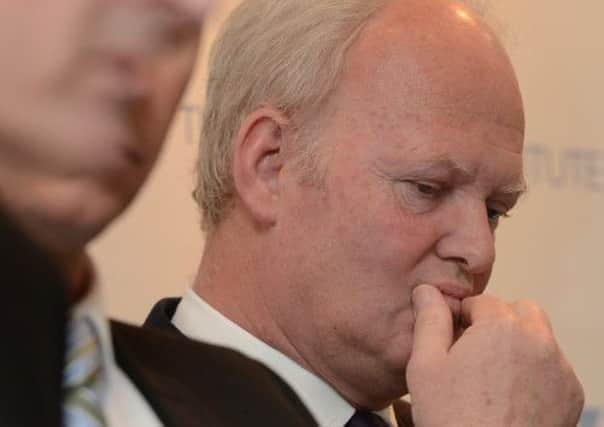Scottish independence: Faslane examined in report


Scotland and the remainder of the UK (rUK) would find it in their best interests for the key strategic base to remain in British hands, the paper said.
Such a leasing deal would be the “least worst” option available to both sides, allowing the UK the time – perhaps as much as two decades – to plan and build a new Trident home within its own borders, while also helping Scotland’s case to become a member of the Nato military alliance.
Advertisement
Hide AdAdvertisement
Hide AdThe conclusion emerged from the paper published yesterday on the SNP’s proposals for defending an independent Scotland by think tank the Scotland Institute.
The review was chaired by Major-General Andrew Mackay, the former Scottish army soldier who led British forces in Afghanistan.
Drawing on interviews with Nato chiefs, defence academics and other experts, it said that Scotland could defend itself after independence, but would only be able to fulfil “limited niche functions such as protecting fisheries and oil reserves”. The report also warned that independence could lead to a “wholesale dismantling” of the country’s defence industry.
A section on Nato – which the SNP now says it wants to join – noted the difficult dilemma that a Scotland which wanted to get rid of Trident would face.
The country “might be waiting a very long time” to get membership of Nato if it insisted on being a nuclear-free zone. The most likely scenario, it argued, was that Scotland agreed to “some sort of leasing agreement” on Faslane, subject to a lengthy transition period.
Lead researcher Dr Simon Smith, of Aston University in Birmingham, who conducted many of the interviews with UK and international figures, said: “This is the least-worst option, certainly from the rUK’s point of view but also from an independent Scotland’s as well. It gives them an ability to have a negotiation that is less acrimonious and fractious.”
He added: “There will be some sort of deal during the two years of a negotiation that will see the Scottish Government give way on a leasing arrangement as the quid pro quo for the UK’s backing of Nato membership.
“That has drawbacks as well. For an independent Scotland it will mean having a sovereign territory on home soil. It would mean nuclear weapons for up to 20 years. It is a marquee issue for the SNP but the reality is that it is not as straightforward as is being suggested.”
Advertisement
Hide AdAdvertisement
Hide AdThe subject was also raised yesterday by defence expert and former SNP candidate Stuart Crawford.
Writing on the subject, he said “should an independent Scotland continue to espouse the anti-nuclear agenda then its accession to Nato would most likely be blocked or delayed”.
He went on: “Should the commitment remain to remove them from Scottish soil at the earliest opportunity, the corollary is likely to be that Scotland’s accession to Nato might stretch out for many years – or possibly not happen at all.”
The SNP’s policy is to join Nato subject to the removal of the nuclear submarines from Scottish soil.
The Scottish Government is expected to publish more detailed defence plans later this year.
On the subject of Faslane, the SNP has said it would become a conventional naval base after independence.
SNP figures have said that Trident would be removed as promptly as possible, but they have not put a timescale on its removal.
A spokesman for the Scottish Government said: “An independent Scotland will have first-class conventional forces, which will play a full role in defending the country and co-operating with international partners – but we will not waste billions of pounds on Trident nuclear weapons.”